Introduction to Environmental Technology
Environmental technology, also known as green technology or clean technology, focuses on creating sustainable solutions to environmental challenges. This includes developing technologies for renewable energy, waste management, water treatment, and pollution control.
Key Concepts in Environmental Technology
- Renewable Energy: Explore the different types of renewable energy sources such as solar, wind, hydroelectric, and bioenergy. Understand the principles behind these technologies and their environmental benefits.
- Waste Management: Learn about techniques for reducing, reusing, and recycling waste. Study the processes of composting, anaerobic digestion, and landfill management.
- Water Treatment: Examine the methods used to purify and treat water for human consumption and industrial processes. This includes filtration, desalination, and advanced oxidation processes.
- Pollution Control: Understand the technologies and strategies for controlling air and water pollution. This may involve the use of scrubbers, catalytic converters, and pollution monitoring systems.
- Sustainable Design: Explore the principles of sustainable architecture and urban planning, including green building materials, energy-efficient design, and smart urban infrastructure.
Applications of Environmental Technology
Environmental technology is applied in various industries and sectors, including:
- Energy production and distribution
- Manufacturing and industrial processes
- Agriculture and food production
- Transportation and urban infrastructure
- Waste treatment and recycling facilities
Challenges and Future Trends
Discuss the current challenges facing environmental technology, such as the need for cost-effective solutions and global adoption of sustainable practices. Explore future trends in the field, including advancements in clean energy technologies, circular economy models, and climate change mitigation strategies.
.◂Biology Worksheets and Study Guides High School. Human biology II
Worksheet/Answer key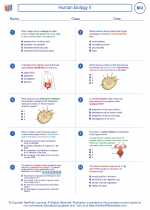 Human biology II
Human biology II  Worksheet/Answer key
Worksheet/Answer key Human biology II
Human biology II  Worksheet/Answer key
Worksheet/Answer key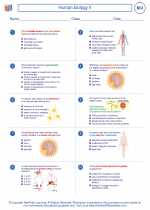 Human biology II
Human biology II  Vocabulary/Answer key
Vocabulary/Answer key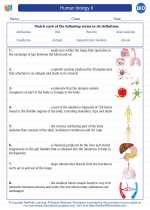 Human biology II
Human biology II  Vocabulary/Answer key
Vocabulary/Answer key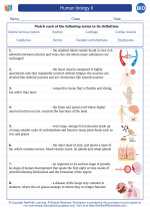 Human biology II
Human biology II  Vocabulary/Answer key
Vocabulary/Answer key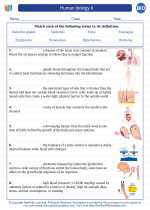 Human biology II
Human biology II  Vocabulary/Answer key
Vocabulary/Answer key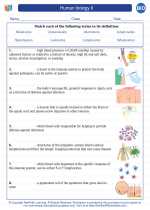 Human biology II
Human biology II  Vocabulary/Answer key
Vocabulary/Answer key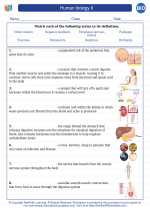 Human biology II
Human biology II  Vocabulary/Answer key
Vocabulary/Answer key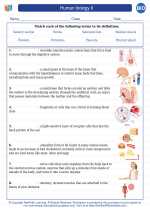 Human biology II
Human biology II  Vocabulary/Answer key
Vocabulary/Answer key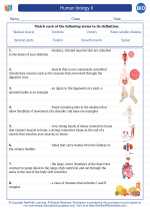 Human biology II
Human biology II 

 Worksheet/Answer key
Worksheet/Answer key
 Worksheet/Answer key
Worksheet/Answer key
 Vocabulary/Answer key
Vocabulary/Answer key
 Vocabulary/Answer key
Vocabulary/Answer key
 Vocabulary/Answer key
Vocabulary/Answer key
 Vocabulary/Answer key
Vocabulary/Answer key
 Vocabulary/Answer key
Vocabulary/Answer key
 Vocabulary/Answer key
Vocabulary/Answer key
 Vocabulary/Answer key
Vocabulary/Answer key

The resources above cover the following skills:
LIFE SCIENCE (NGSS)
From Molecules to Organisms: Structures and Processes
Students who demonstrate understanding can:
Develop and use a model to illustrate the hierarchical organization of interacting systems that provide specific functions within multicellular organisms.
Plan and conduct an investigation to provide evidence that feedback mechanisms maintain homeostasis.